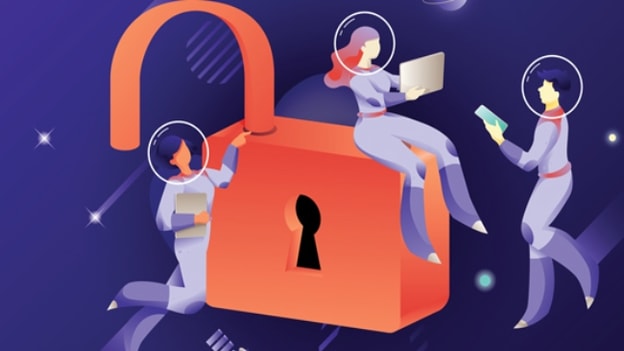Why do we need to design more gender-inclusive cyberspaces?

Women comprise only 24% of the workforce in the cybersecurity industry. Even though they are responsible for some of the most critical work in the sector, it is clear that they are markedly under-represented there. In light of this, can a woman build her way up through an industry full of such challenges, and more importantly, is its ecosystem even prepared to see women in top positions?
In an interaction with People Matters, Shikha Kothari, Senior Security Advisor at Eden Data, which offers a retainer model of cybersecurity leadership over security, compliance, and data privacy for startups, discusses the current under-representation of women in the cybersecurity industry and how they can be successful in it.
What are the top challenges women face in cybersecurity? How can they tackle them?
The cybersecurity environment is always evolving. To deliver value, all professionals need to spend time in continuous education. Traditionally, women have been the primary caregivers for children and ailing family members; thus, finding time is very difficult for women.
To counter-fight the challenges, employers should consciously sponsor women for continuing education programmes. They should also nominate them for challenging projects and back them up with the right type of training.
I have the opportunity to work with Eden Data, a virtual CISO firm, where all employees are given opportunities as well as the time to attend training, study for professional certifications and receive a lot of on-the-job training.
We also have a culture, where asking for help and continuously challenging the status quo are rewarded.
Can you provide some expert insights into how women can build their way up in a male-dominated industry?
Women should invest in their education. With every opportunity presented, they should see how they can use it to boost their skills. Women are generally very diligent and conscientious about their work and want to be team players, but the pitfall is that women tend to more easily accept and keep being content with less challenging or more laborious or more busy work.
They should constantly try to change this narrative by asking for more challenging roles or roles that offer more professional visibility.
While this might seem uncomfortable in the beginning, once we keep pushing to be in the drivers’ seat of our own careers, it will become easier and easier.
How are women changing the cybersecurity landscape?
Women are now increasingly holding the roles of CISOs, CTOs, and Heads of Engineering.
They bring their brand of thoughtful leadership when helping companies create sustainable, cost-effective cybersecurity programmes.
And women are detail-oriented, and back up their view - points with solid research and understand the importance of good security for companies or organisations in all sectors.
Women make sure that all voices in the room, including those of other women, are heard.
I started in the field of cyber security about two years ago. Once I decided that cybersecurity is what I wanted to do, I began to actively seek roles within my organisation where I could use my prior experience in the compliance space to transition into cybersecurity.
I also augmented work experience with studying for and passing the Certified Information Systems Auditor Exam.
What is the importance of building gender-inclusive cyberspaces? The consequences of not doing so?
Historically there has been a shortage of talent in the cybersecurity industry. If the companies — or roles — are not gender-inclusive, businesses face a serious risk of losing out on good candidates to a very competitive market.
Offering workplace flexibility can go a long way in retaining women in the cybersecurity industry.
















